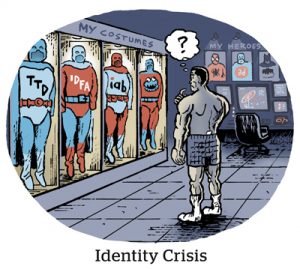Advertisers love a captive audience, and there are few audiences more captive than mass-transit riders.
So it was perhaps inevitable that Intel-owned urban mobility app Moovit would launch an ad platform. (Isn’t everyone?) Moovit’s advertising service is now live everywhere its app is used.
The Moovit app, which has 1.4 billion global users, offers real-time information about bus and train lines, ridesharing and other modes of urban transit. People opt in to share their location, which the app uses to provide real-time travel updates.
That location data will now serve as a primary targeting signal for display and video ads in the Moovit app.
Location, location, location
Advertisers can either target all Moovit users in a given geographic location, such as a particular city or ZIP code, or they can use an individual rider’s location and their real-time proximity to places of interest or brick-and-mortar locations to trigger an ad.
A bank, for example, like Israeli banking chain Bank Hapoalim, Moovit’s first brand client, could hypothetically serve ads to Moovit users who enter a set radius around a branch location or target people anytime they approach a transit stop that’s near one of the bank’s branches. The bank could also target anyone who uses the Moovit app to find directions to one of its branches.
For campaigns intended to drive users to brick-and-mortar locations, the Moovit app can also dynamically tell users how far away a given location is, said Yovav Meydad, Moovit’s chief growth and marketing officer.
Although Moovit works with mobile attribution providers, including AppsFlyer and Adjust, to track ad clicks and conversions, Moovit’s location data is anonymized, so advertisers will not be able to attribute specific ad impressions to physical store visits using location data, because that would involve tying that location data to an individual user, Meydad said.
The ads are only shown inside the Moovit app and cannot be served through push notifications or similar alerts, he said.
All campaigns sold through the Moovit app are direct buys. Moovit’s ad platform doesn’t plug into the open programmatic ecosystem, and Moovit has its own three-person ad ops team to handle ad sales. The company plans to grow its ad ops team as the ad platform rolls out to other markets, Meydad said.
The ad ops team will work together with Moovit’s regional digital media partners to grow the company’s ad business. Moovit has partnered with Aleph Group for the Latin American market, Triboo in Italy and Benefit Media in Israel. Advertisers outside of Latin America, Italy and Israel can contact Moovit’s Google AdSense team to work out direct deals.
Moovit will collect a fee for each ad sold, although Meydad declined to discuss pricing.
Location data privacy
Meydad claims the Moovit ad platform is compliant with GDPR and CCPA because users don’t have to log in or create a profile to use the Moovit app, so their location data cannot be traced back to them. Rather, they must provide their consent to allow the app to track their location, and that consent can be withdrawn at any time.
The use of location data in advertising already carries a lot of privacy-related baggage, and it has become a flashpoint in the US because of the Supreme Court’s recent Dobbs v. Jackson decision, which overturned federal abortion protections and allowed states to criminalize a range of abortion-related and abortion-adjacent medical care.
Location data is commonly used for advertising purposes, but critics have raised concerns that this data could become evidence in criminal investigations of suspected abortions.
Even if location data cannot be tied to an individual, it can be used to gain insight into interstate travel patterns. And American law enforcement agencies do have a history of purchasing location data for evidentiary use. Fact is, law enforcement doesn’t need to go through the usual legal processes to obtain user data if they can simply purchase it.
Moovit does not sell its location data to any third parties, including law enforcement agencies, Meydad said. However, the decision of whether to comply with a legal order for access to that data would be left to Moovit’s legal counsel, he said.
Moovit disposes of anonymized location data gathered by the app in accordance with GDPR guidelines for data retention, Meydad said.
And, although the data is anonymized, users can request to have their data deleted from Moovit’s servers. This is done based on the anonymized hash that is generated for users when they opt in to share location data with Moovit.
Correction: This article was updated to clarify that Moovit’s ad platform is now open to advertisers in all the markets it operates in, not just Latin America, Italy and Israel.
















